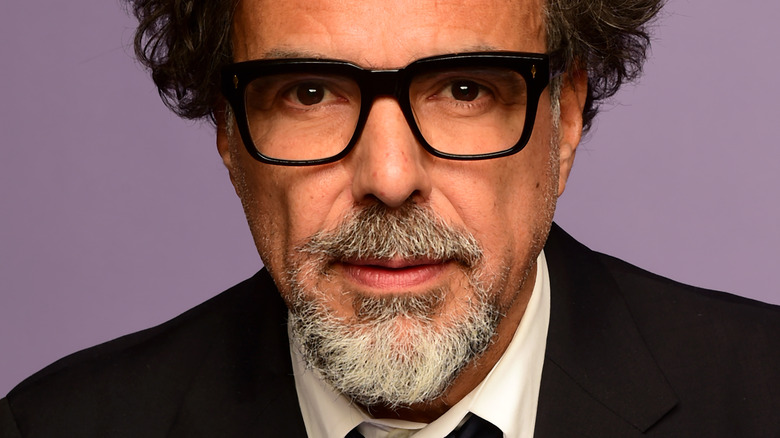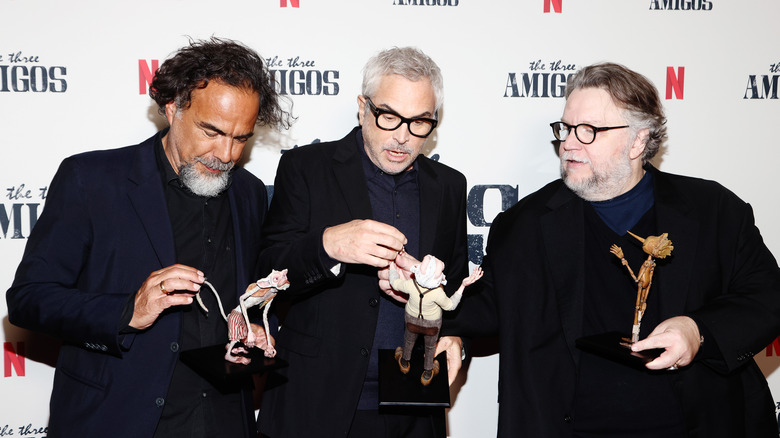Alejandro G. Iñárritu Thinks We're Looking At The Whole Theatrical Vs. Streaming Debate All Wrong
It would be an understatement to say that the way we consume cinema has changed in the last decade. Perhaps the biggest shift for filmmakers, distributors, and audiences alike has been the movement toward streaming — a topic with which many prominent directors have grappled. Although Martin Scorsese has acknowledged the benefit of streaming services, and has collaborated with them himself, he says those platforms have, "created a situation in which everything is presented to the viewer on a level playing field, which sounds democratic but isn't" (via Harper's Magazine). David Lynch was more brusque: "If you're playing the movie on a telephone, you will never in a trillion years experience the film."
In a conversation for Deadline, Alfonso Cuarón, Guillermo del Toro, and Alejandro G. Iñárritu sat down to discuss their craft, friendship, and the future of film. Naturally, streaming and the concept of "content" featured prominently in the filmmakers' discussion. According to Iñárritu, the streaming versus theatrical debate is much more complex than the current dichotomy suggests.
Iñárritu is more concerned with the message than the medium
Put Alfonso Cuarón, Guillermo del Toro, and Alejandro G. Iñárritu in a room together, and there's bound to be equal parts gentle ribbing and earnest discussions about filmmaking. The three veteran filmmakers envision themselves both as active artists, as well as mentors to burgeoning filmmakers. And within that scope of mentoring, the filmmakers have very definite thoughts about the rise of streaming services.
When the discussion turned to the topic of streaming, it was noted that the current generation "engages with cinema differently" (via Deadline). Iñárritu responded by comparing cinema to music, which has also undergone tremendous technological changes. "Obviously, it's better to go to the concert hall and hear 120 musicians play it live," he argued, "but no matter how you hear it, it doesn't diminish the idea behind the music." For the Academy Award-winning director, the message is more important than the medium. Where the danger lies, he says, is when the medium dictates the message. "What I'm concerned about is less the technology, and the ways that people are watching cinema, but that there's a dictatorship of ideas behind that," Iñárritu explained. "It's about the movies that are being made to please that media."
"I think the ideas are being reduced to computer size in terms of ideology, and I think everybody is participating in that," Iñárritu continued. "The reduction of the idea is what we should discuss, not the possibilities of the medium."

